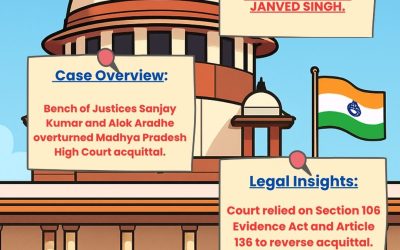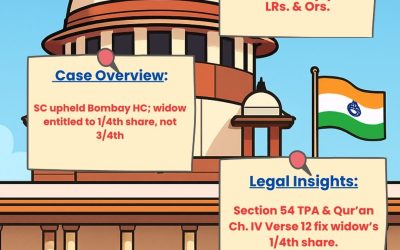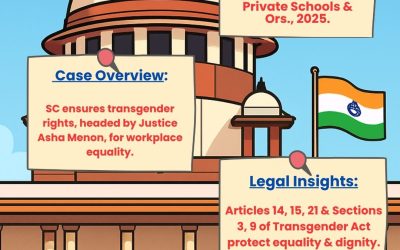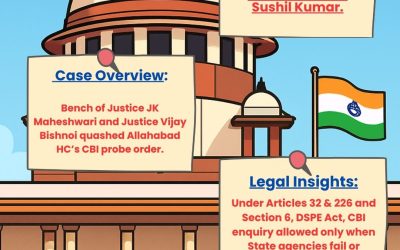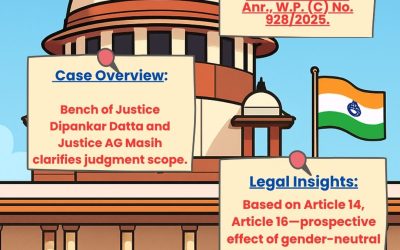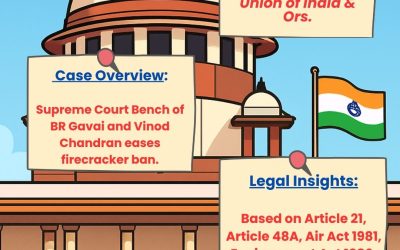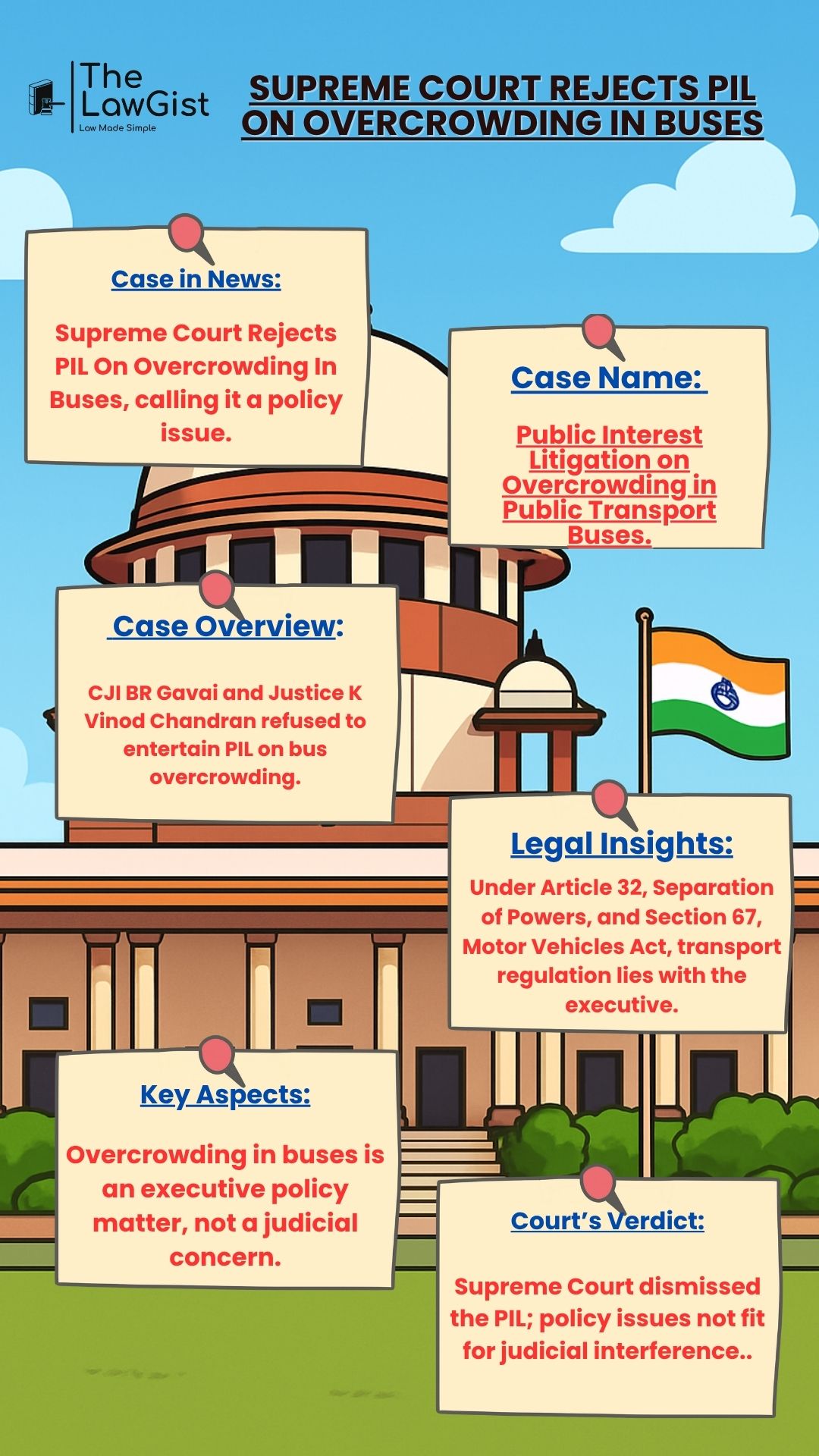
Supreme Court declines to entertain PIL on overcrowding in public buses, ruling that transport regulation and passenger safety are executive policy matters beyond judicial jurisdiction.
Case in NewsThe Supreme Court rejects PIL on overcrowding in buses observing that issues concerning public transport management fall within the executive’s policy framework and not within the judiciary’s scope . |
Discover powerful Latin Maxims and simplify complex legal terms in seconds.
Case Overview
Fact: Public Interest Litigation on Overcrowding in Public Transport Buses
A bench of the Supreme Court of India comprising CJI BR Gavai and Justice K Vinod Chandran, refused to entertain a Public Interest Litigation (PIL) seeking directions to curb overcrowding in buses operated by public and private transport services across India . The petitioner argued that overloading of buses leads to frequent accidents, loss of lives and unsafe travel conditions for commuters . However, the Supreme Court clarified that the matter pertains to public policy and therefore falls under the domain of the executive branch of the government .
Step into the world of justice with Courtroom Chronicles
Key Aspects
The Court reiterated that judicial intervention must be exercised with caution, especially in policy-related matters . Before the pointers, the bench emphasized that such issues require legislative and administrative action rather than court directives .
Facts and Issues:
- The PIL sought preventive measures against overcrowding in buses operated by both public and private entities .
- The petitioner claimed that thousands of lives are endangered annually due to unsafe travel conditions .
- The Court noted that the subject relates to public transport regulation and state policy execution .
- The judiciary’s role is not to frame or enforce administrative measures, but to adjudicate on legal rights .
- The petition lacked specific evidence of violation of any fundamental right .
Legal Insights
The Court discussed the relevant constitutional and statutory framework to clarify the limits of judicial authority :
- Article 32 of the Constitution of India empowers the Supreme Court to enforce fundamental rights, but not to issue policy directives in administrative matters .
- The Doctrine of Separation of Powers mandates that policy formulation and implementation fall exclusively within the executive domain .
- Under Entry 35 of List III (Concurrent List) in the Seventh Schedule, both the Union and States have competence to legislate on mechanically propelled vehicles, including buses and transport safety .
- Section 66 of the Motor Vehicles Act, 1988 regulates permits for transport vehicles, while Section 67 empowers State Governments to control and monitor road transport operations.
- Judicial interference is warranted only when there is arbitrary exercise of power or fundamental rights violation—none of which was established in this case .
Court’s Verdict
The Supreme Court dismissed the PIL observing that overcrowding in buses is a policy matter better addressed by the concerned State authorities . The bench declined to issue directions holding that not every policy lapse warrants judicial intervention . CJI BR Gavai stated, “There are other organs of the Constitution which are functioning; not everything has to come before the Court.”
Source – Supreme Court of India
Read also – Constitution of India
The LawGist ensures exam success with quality notes—TPL, Current Affairs, Recent Judgments, and more. Backed by trusted resources and videos, The LawGist is every aspirant’s first choice. Discover more at thelawgist.org.


